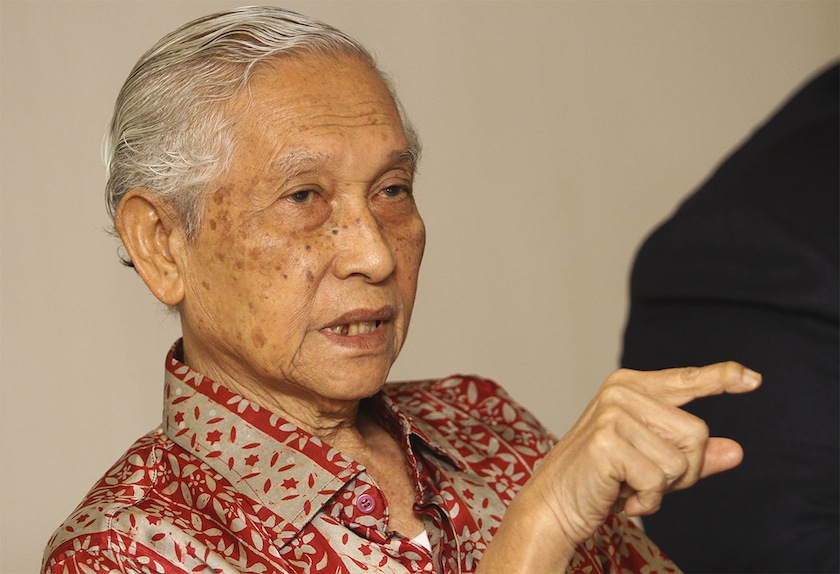KUALA LUMPUR, Jan 20 — The Sedition Act 1948 is an extraordinary set of legislation which has to be retained to protect the country’s security, says legal expert Tan Sri Abdul Aziz Abdul Rahman.
In making the call on the government to retain the law, he said any move to amend or repeal the Sedition Act would have great implications on the country’s security.
He said the legislation could not be abolished or amended without getting the consent of the Council of Rulers.
“The Sedition Act is the most important act. It is effective in protecting the country’s security. Amendment to the Sedition Act 1970 is made under Article 10(4) of the Federal Constitution.
“As such, it cannot be repealed, amended except with the consent of the Rulers’ Council and the support of two-thirds majority in Parliament,” he told reporters when met at his residence here today to explain the need to retain the act.
Last Monday, Home Minister Tan Sri Muhyiddin Yassin was reported as saying the Sedition Act was among six acts being studied to be amended or abolished.
The use of the Sedition Act was temporarily suspended in October last year but it was reactivated in December.
The act was used for the first time in 1948 by the British to control actions and speech which could raise opposition among local residents against the colonial masters.
Following the May 13, 1969 riots, the National Operations Council (Mageran) was set up as an emergency government after amending Sedition Act 1948 and the Federal Constitution by adding Clause 4 to Article 10.
Article 10 (4) restricts the freedom of expression by the people on four subjects considered sensitive namely the national language, special rights of Bumiputeras, Section III and the sovereignty and powers of the Malay Rulers.
Abdul Aziz, 85, who is a former legal officer of Mageran and the only one still alive was involved in drafting the Sedition Act 1970.
Meanwhile, Minister in the Prime Minister’s Department Datuk Liew Vui Keong said the government has the right to amend, abolish or introduce any act it felt necessary and appropriate for the country.
“The government has the right (to amend, repeal and introduce new acts)... it does not need to get the consent of any parties... but in the process of democracy, the government can listen to the views of all parties concerned,” he said when contacted by Bernama.
In this regard, he said the government would be studying in detail earlier by taking into consideration the views of various parties on the proposal to amend the Sedition Act 1948 before tabling it in Parliament.
“… and in the process, the government through its protocol will obtain the consent of the Rulers’ Council as the amendment involved the legal rights of the Rulers in the country,” he said. — Bernama



















